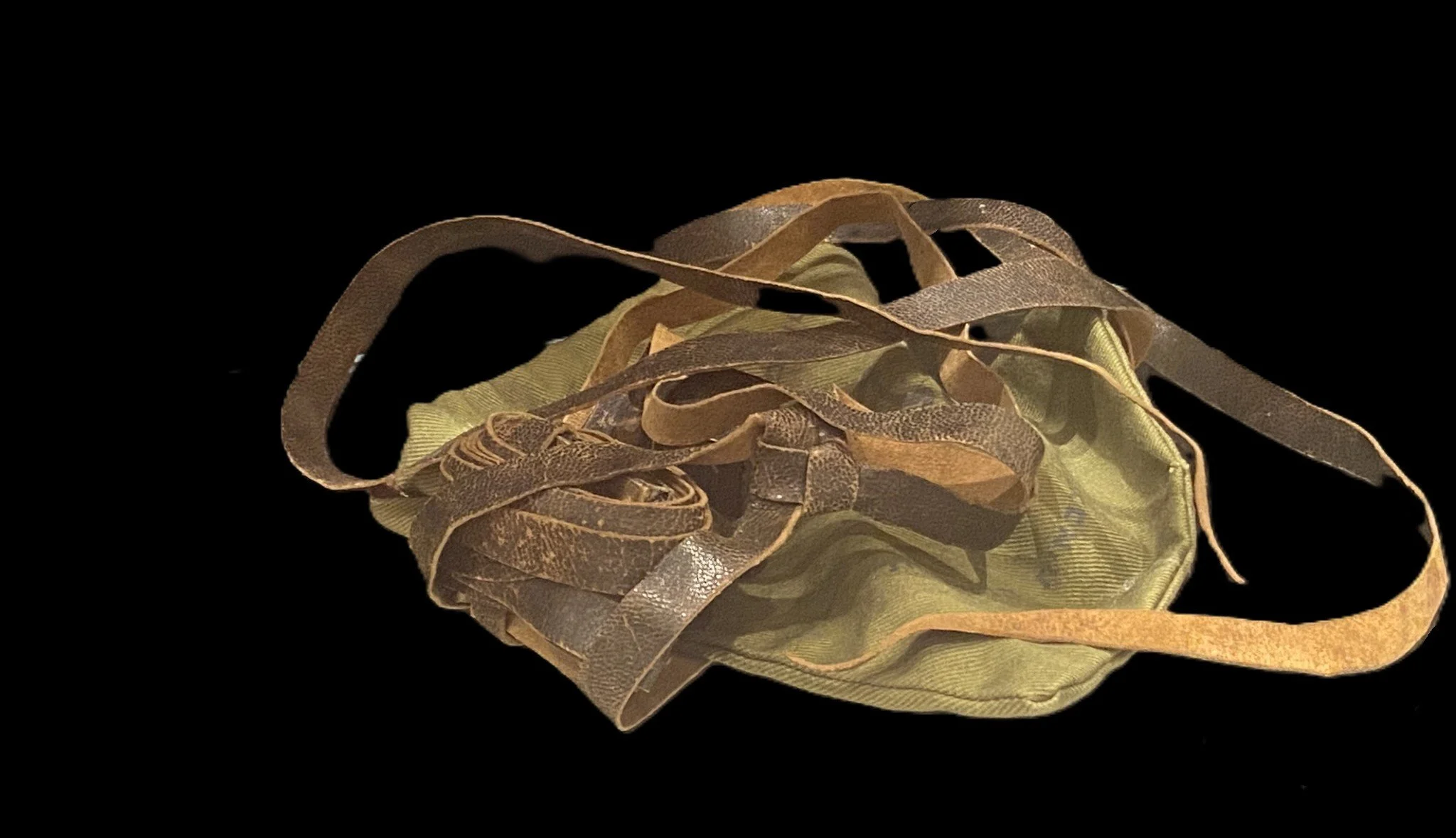Phylactery and bag obtained from Israeli Soldier
The Tefillin (translated ‘phylacteries’) consist of two small black boxes containing small scrolls of parchment upon which are written four Biblical Verses:
Exodus 13:1-10; 11-16; Deuteronomy 6:4-9; 11:13-21. These include the commandment to wear the tefillin as a sign of faith and devotion. Each of the black boxes comes with leather straps so they can be bound upon the hand or work above the forehead. They are written on parchment scrolls in a particular Hebrew script (Ashuri) by a scribe using special ink. The passages contain 3, 188 letters and take 10-15 hours to complete. The tradition of wearing phylacteries probably comes from a misinterpretation of Deuteronomy 6:8, “You shall bind [these commandments] as a sign on your hand, and they shall be as frontlets between your eyes,” which refers to having the commandments in our thoughts and guiding our actions. Jesus referred to these when He said of the Pharisees, “But all their works they do to be seen by men. They make their phylacteries broad and enlarge the borders of their garments.” (Matthew 23:5).
The pouch containing a tefillin was carried by an Israeli soldier.
